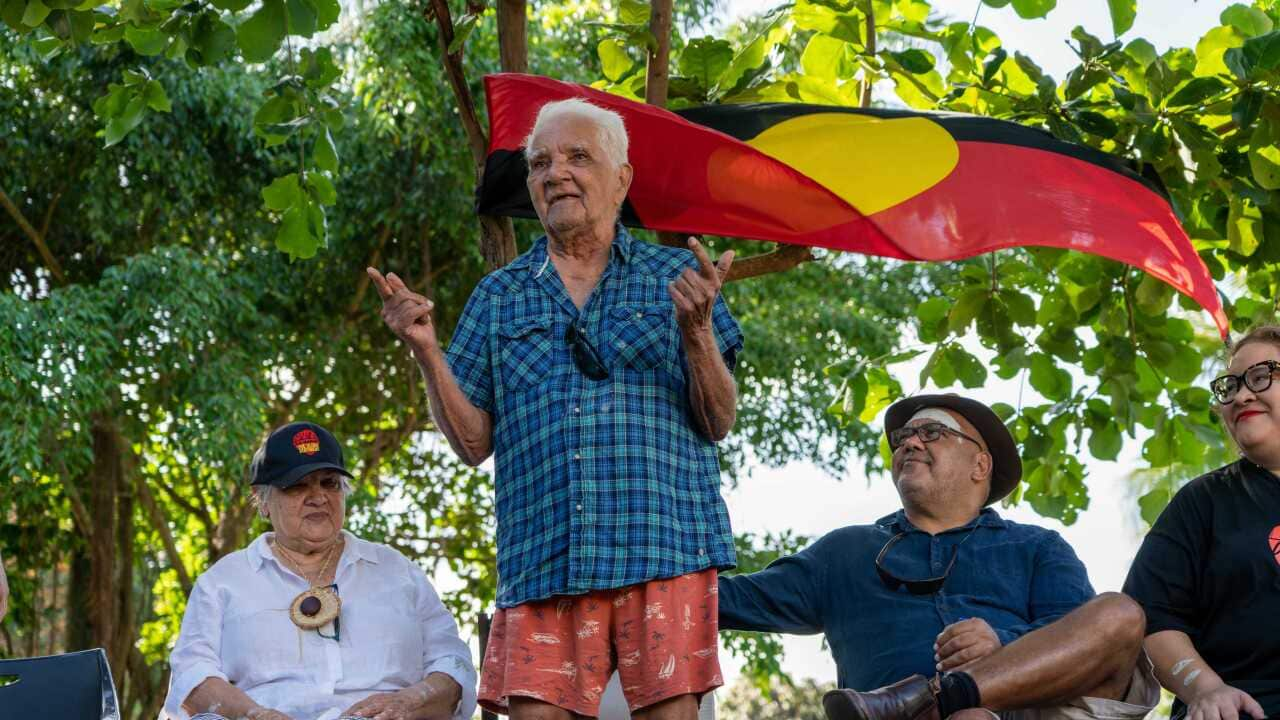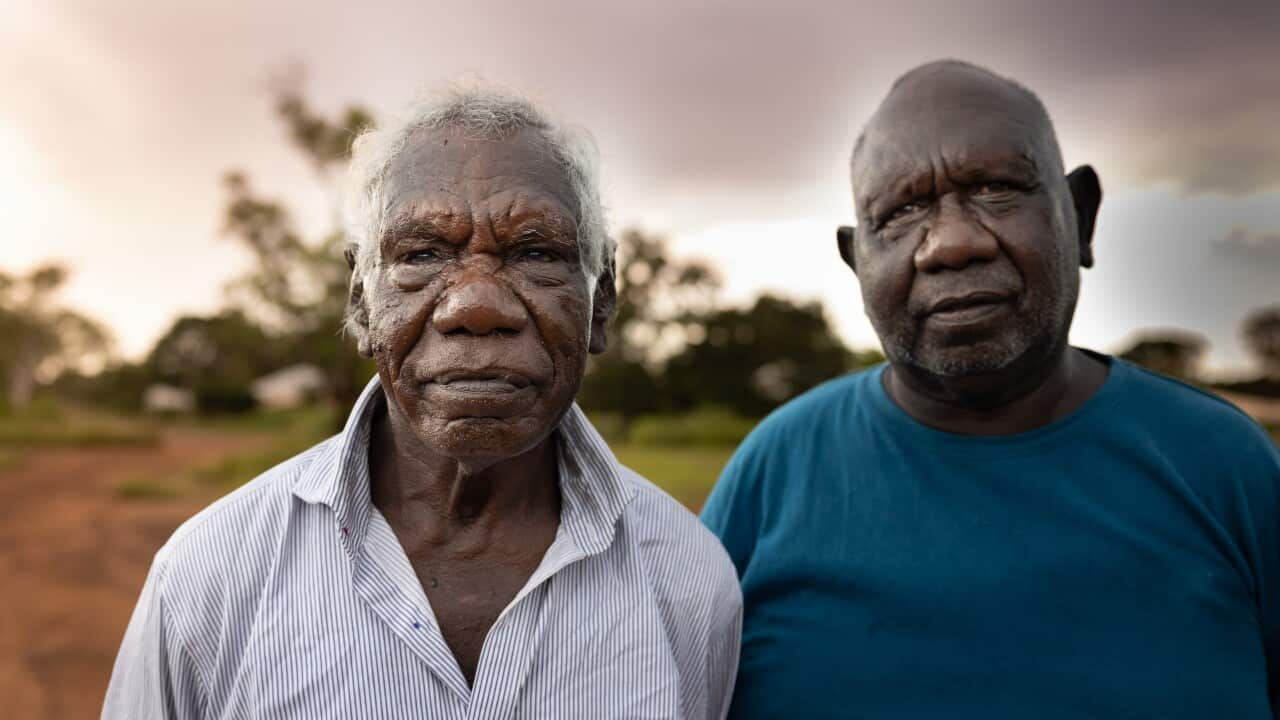The Northern Land Council has called for urgent action to remedy the low numbers of First Nations voters in remote parts of the Northern Territory.
The NT has one of the lowest voter participation rates in the country and many of those not on the electoral roll live in remote communities.
In the Territory only 69.6 percent of First Nations people are enrolled to vote — that's compared to 85.6 percent for the rest of the NT and 96.5 percent nationally.
Northern Land Council Chairman Samuel Bush-Blanasi said it's caused by the lack of services in Aboriginal communities outside of the major towns and cities.
"We are being discriminated because of where we live in the communities and in the outstations and I think that [because] it's so isolated they can't get out there to enroll to vote — we are discriminated against." Samuel Bush-Blanasi told NITV News.
The Australian Electoral Commission has the power to automatically enrol voters using data from Centrelink, the Australian Taxation Office and motor vehicle registries.
Mr Bush-Blanasi said the AEC has failed to do that in the NT.
"I was disappointed and they could have worked with us to try and get numbers up in the Northern Territory to enrol them to vote ahead of the election," he said.
He said the wet season and lockouts or lockdowns, as well as COVID-19 outbreaks, had also contributed to the challenges faced by remote Aboriginal communities in the NT. The Human Rights Commission is currently mediating a complaint about the AEC lodged by West Arnhem Regional council Mayor Matthew Ryan.
The Human Rights Commission is currently mediating a complaint about the AEC lodged by West Arnhem Regional council Mayor Matthew Ryan.

The Northern Territory has one of the lowest rates of Indigenous voter participation in the country. Source: AAP
Lodged in 2021, the AEC is excused of excluding Indigenous people without a postal address from the electoral process.
Many homes in remote communities do not have mailboxes and rely on a central postal address and the AEC does not automatically enrol people to vote if it cannot mail a written notice first.
The sprawling electorate of Lingiari covers almost the entire landmass of the Northern Territory with the exception of the urban areas of Darwin and Palmerston.
Lingiari is considered a marginal seat in this election with Labor holding it by a margin of just 5.5 percent. The Labor incumbent Warren Snowdon has held the seat for the past 35 years but is retiring at this election.
"We see Lingiari as the most crucial vote. It's a great concern, we live in Australia and we should have the right to vote too." Mr Bush Blanisi said.
AEC: Indigenous voters 'priority'
The Australian Electoral Commissioner said increasing the rates of voter enrolment and participation is a priority to ensure all Australians can cast a ballot.
"That is a really critical issue for us," Tom Rogers, the Australian Electoral Commissioner told NITV News.
The AEC is holding community meetings in remote areas, sending out letters and text messages to those who may not be enrolled and partnering with Indigenous media.
Mr Rogers said the AEC is working with Indigenous groups and leaders to drive up the enrolment rates of voters across the country but focusing on remote areas in the NT and Western Australia.
"We are very, very conscious of the need to provide services to remote communities... we do remote area mobile polling,' Mr Rogers said.
He said in the lead up to the May 21 federal election the AEC is ramping up efforts to encourage Indigenous people to vote. The deadline to enrol to vote is 8pm on Monday 18 April.
"We'll have a bigger footprint with more hours of remote area mobile polling and we're really focusing on that issue to make sure that all Australians can have their say," Mr Rogers said.
Indigenous voting participation is improving with a growing number of First Nations voters across the country signing up to the electoral roll since the last election.
"The growth in the estimated Indigenous role is about five percent during that period, for the rest of the wider population it's one percent.
"We're very conscious that we need as many Indigenous people on the roll as possible and we're really striving to achieve that."












